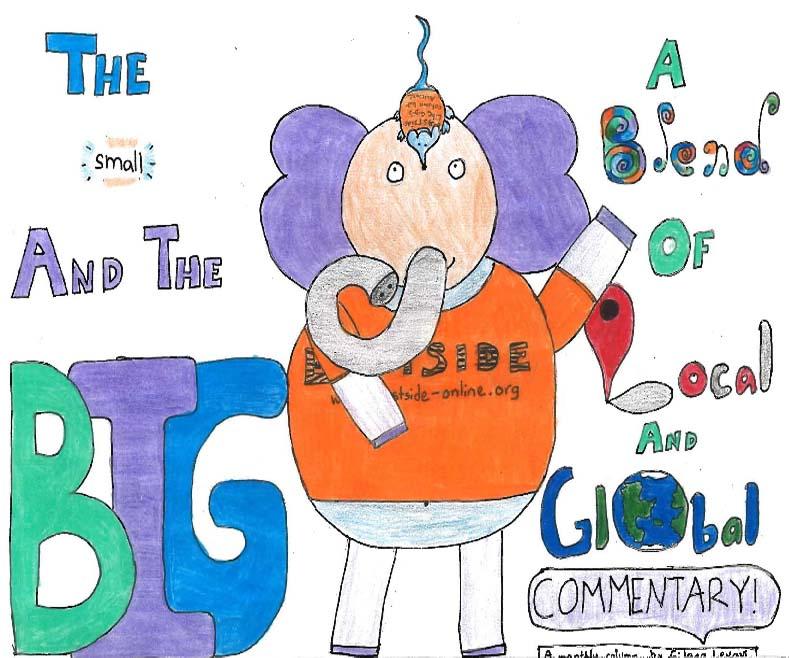The Small and the Big is a column that offers a blend of local and global commentary.
About a year ago, I was walking out of school when I saw someone who I vaguely knew from the eighth grade—I think she was in my gym class. I did not really feel like stopping to talk to her, but I saw that she had seen me, so I gave a polite smile and began to continue walking. To my surprise, she said hi to me, so I stopped. We had a short friendly conversation, during which she asked me how my school year was going. I said that, although I have a lot of work, school is going well. She then told me that she had just performed poorly on a French test. Then, I said that I had to go (which I did), and so I continued walking home.
I was surprised that she had said hello to me only because I had seen her only a few other times around East, but we had not spoken to each other on any of these occasions. I was curious why she spoke to me then, but not on any of the other previous occasions. I thought that the French test had something to do with it. Maybe she wanted to tell someone about it and I just happened to be the first available person. Maybe because I had said that I had a lot of schoolwork, she felt that she could tell me about the test because we were both, in a way, oppressed by schoolwork, and therefore had something in common that she could talk to me about. Oppressed probably is not the right word, but you know what I mean—we were both experiencing the same circumstance.
The people of many African countries, including Uganda and Sudan, are known for their abundant kindness. This is interesting because Africa also contains the majority of the world’s poorest countries. According to worldbank.org, more than 50 percent of sub-Saharan Africa lives on less than one dollar per day, and almost 75 percent lives on less than two dollars a day. The people of these countries are oppressed by a common denominator: poverty. In the same way that the common, though much less serious, “oppressor” of schoolwork perhaps made the girl I saw friendly towards me, perhaps the common suffering that many Africans feel due to poverty makes them friendly towards each other, and by habit, towards outsiders.
Yet why must we wait for oppressors and suffering to bring people together? People should strive to be friendly and kind just for the sake of being friendly and kind—just for the sake of our common humanity.
You do not need a reason to say hello to someone and ask how he or she is doing. Rather than giving a polite smile and continuing on my way on all of those previous occasions, I should have stopped for a moment, said hello and asked how she was each time I saw this girl. There was no reason to wait for an “oppressor” to bring us together.
If people are friendly towards each other simply for the sake of our common humanity, perhaps this positive force of friendliness can grow and grow, until it becomes strong enough to defeat all negative, oppressive forces.



